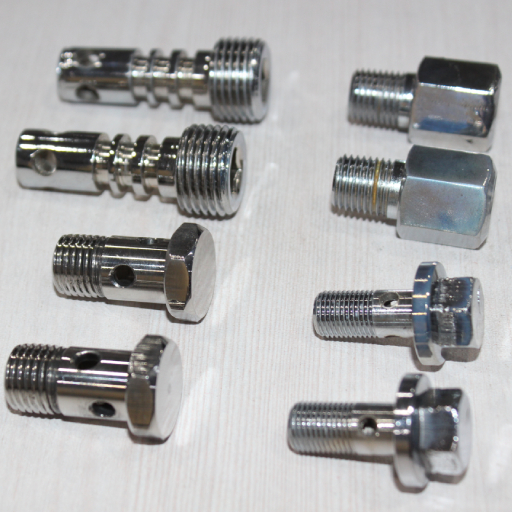BANJO BOLTS

Manufacturing banjo bolts involves intricate processes tailored for precision and reliability in hydraulic and fluid systems across automotive, aerospace, and industrial applications. These specialized bolts play a critical role in connecting hoses or tubing to components, ensuring secure and leak-free fluid transmission.
The manufacturing process begins with selecting materials like steel, stainless steel, or other alloys known for their strength, corrosion resistance, and durability. Precision machining techniques, including CNC milling and threading, shape the raw material into banjo bolts with accurate dimensions, threads, and specific configurations.
Quality control measures such as dimensional inspections and pressure testing ensure the bolts meet stringent standards for strength, sealing, and performance under varying pressures and temperatures. Surface treatments, such as coatings or platings, may be applied to enhance corrosion resistance and durability.
Banjo bolts' crucial role in fluid systems necessitates meticulous manufacturing techniques to ensure their reliability and performance. Ongoing advancements in materials, machining technologies, and quality control continue to refine the production of banjo bolts, supporting efficient and reliable fluid transmission in various industries.
Product Details
| Size | M6 to M48 |
| Usage/Application | Industrial, Automotive and Degence |
| Packaging Type | Box |
| Head Shape | Hexagonal |
| Material | MS, SS, En1A, Aluminium and Brass |
Application

Chemicals industry

Fats and fertiliser industry

Shipbuilding

Construction industry

Oil and Gas industry

Power Plants industry

Steel industry
























